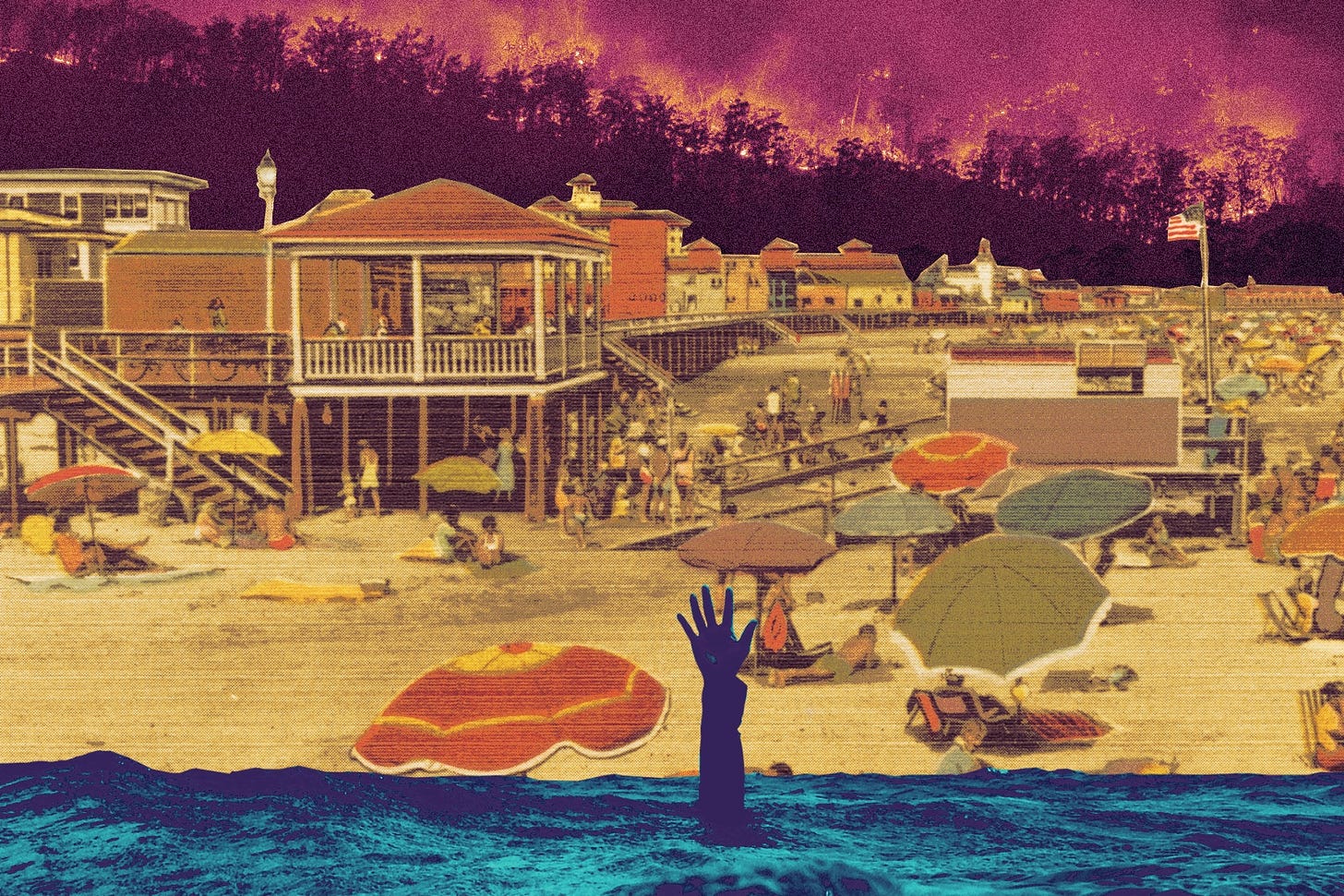This isn’t freedom, it’s chaos
How an organisational theory from 1968 predicted our world
There’s a term in organisational theory called adhocracy.
Venture capitalists are really into it.
It’s about structuring an organisation with an intentional lack of rules, procedures and norms in order to purposefully generate high uncertainty. The thinking goes that this uncertainty spurs self-organisation and initiative which leads to innovation.
It is also designed to outwit competitors. A high level of uncertainty and ad hoc decision making makes the end product impossible to predict by a rational opposition.
Everyone is free. Everything is decided on the hoof. The competition can’t forecast your next move.
This might work fine for a business. Risky, but I can see the logic.
But there is nothing logical about running a society like this.
We can’t just make things up as we go. Society isn’t a start-up. There are no competitors. We either succeed, or we fail. Collectively.
And at the moment we’re failing.
Because the ruling class have decided to organise society using the principles of adhocracy. They have decided to run this thing like a start-up.
Nowhere is this clearer than with covid.
By letting a virus spread freely around the world, by scrapping testing and tracing, by winding back sequencing efforts, they have introduced an extreme level of uncertainty that makes an innovative outcome inevitable.
The problem is that when a virus innovates, society loses. And we may be about to lose. Big time.
Scientists have found a strain of covid that has seriously mutated away from the currently dominant omicron, to the extent that it is essentially a new virus. If this version of the virus gets a foot hold, we will be back to square one. We won’t know this for some time, given the dismantling of testing infrastructure.
And even if it doesn’t get that foothold, with unfettered global transmission and 8 billion warm-blooded hosts to play around in until it finds the immune-evading sweet spot, it seems inevitable that this is where we are going to end up.
It is the viral innovation the system must eventually select for.
When adhocracy was coined by Warren Bennis and Philip Slater in 1968, it wasn’t a blueprint. It was a warning.
A warning about what would happen if the antipathy against bureaucracy which had begun to build in the late 60s reached a logical conclusion. They called the series of essays in which it appeared “The Temporary Society.”
In this temporary society, everyone would be fending for themselves, and the very institutions we rely on for the smooth functioning of society would become self-loathing. Bureaucracies would seek to abolish themselves.
Sound familiar?
In so many ways this is the essence of the small state political idea we see everywhere. Politicians who seek election on the promise that they will break everything about the institutions they want to manage. Governments that hate the idea of themselves. Politicians who are continually trying to shrink the state and privatise its functions in the name of innovation. People whose singular goal is to set capital free.
As such, we shouldn’t wonder why we have a permanent pandemic and a climate crisis.
An adhocratic model cannot accept the existence of physical realities, or brute facts. The existence of these things requires bureaucracy and planning, not uncertainty and doubt. Viruses and CO2 are brute facts you can’t socially construct your way out of. Good outcomes in this case are the opposite of innovative. They are predictable.
But as rules, procedures and norms are increasingly erased in the pursuit of innovation and freedom, as physical realities are ignored in the quest to ensure capital is free, we end up with an outcome that was easily forecast - chaos.
A virus continues to sweep a world on fire. Yet it seems many have been convinced that these outcomes are worth it for the freedom we get in response.
As if burning to death on a beach is freedom. As if the possibility of being disabled by a virus while doing your weekly grocery shop is freeing.
A meaningful response to these realities would ditch the adhocratic thinking and create new bureaucracies and promulgate new norms that recognised the perilous state human society finds itself in.
Leaders who understood the moment would recognise we are sacrificing any semblance of a future for the short-term gains of a few people who have moulded society into their vision of a tech bro start-up, shorn of rules and procedures.
This response would recognise we can’t self-organise among 8 billion people.
Uncertainty is our enemy, not an organising principle for a global society.
Because while in theory it might be freeing to live without rules, in reality it means things burn and break.
(Original artwork by @ronniefurbear on instagram)



Nailed it. I wouldn't even want to work in a startup based on this, but I definitely don't want to live in an adhocratic society. Never thought I'd see the world in this state.
Nice framing. Useful for understanding the state we find ourselves in. Don't believe anything like this was planned, just worked out that way, but it probably wouldn't matter even if it was.